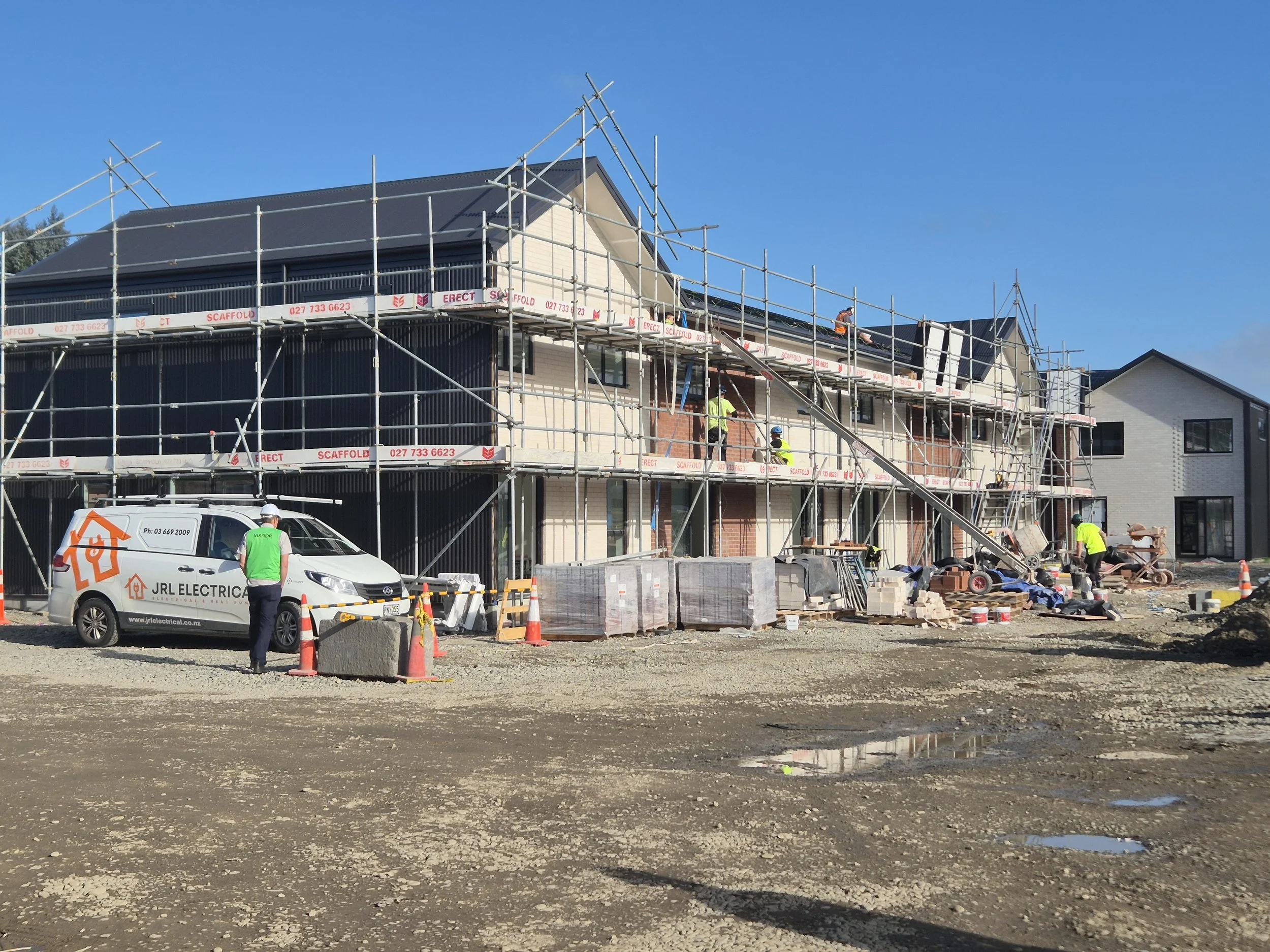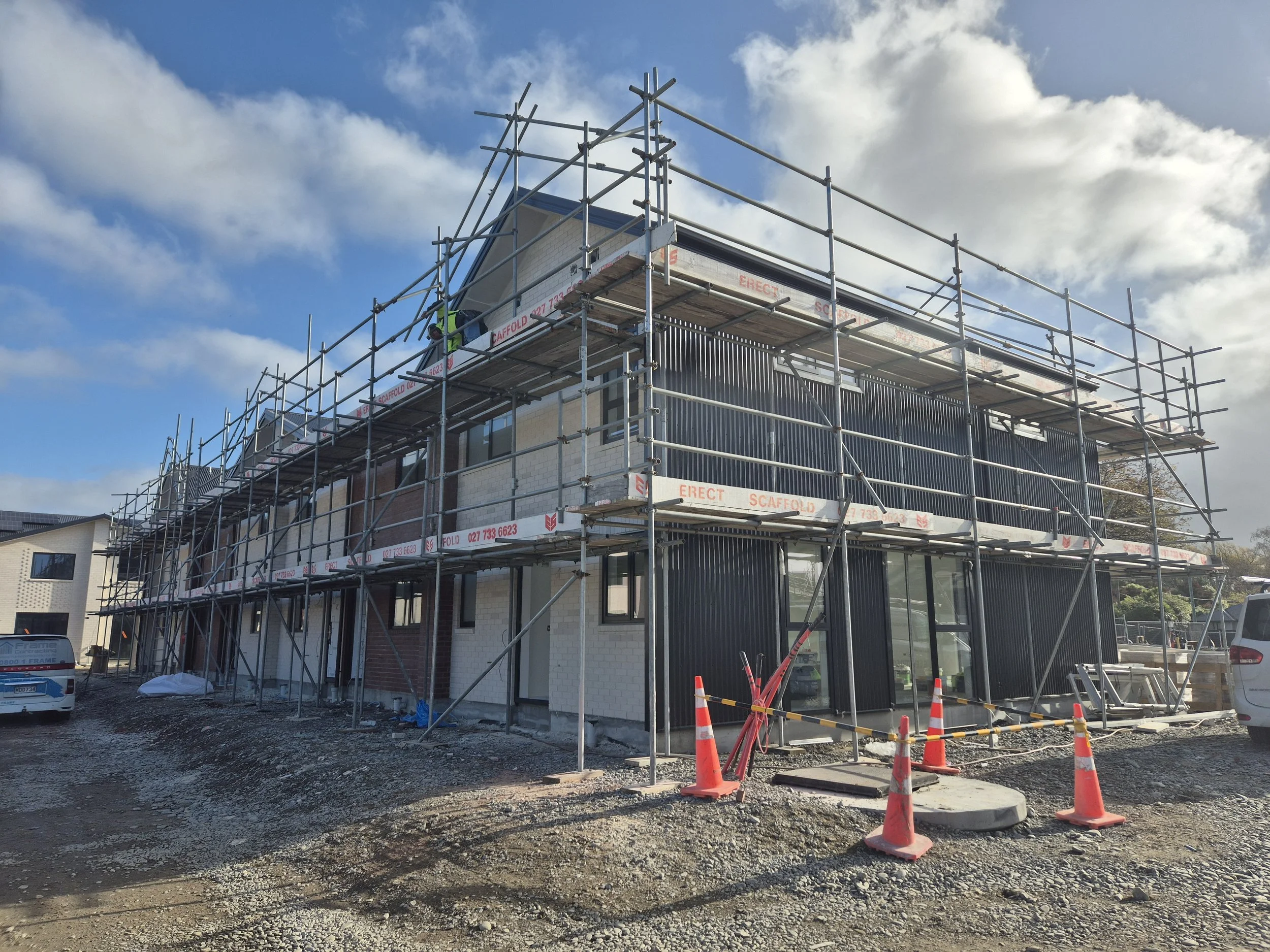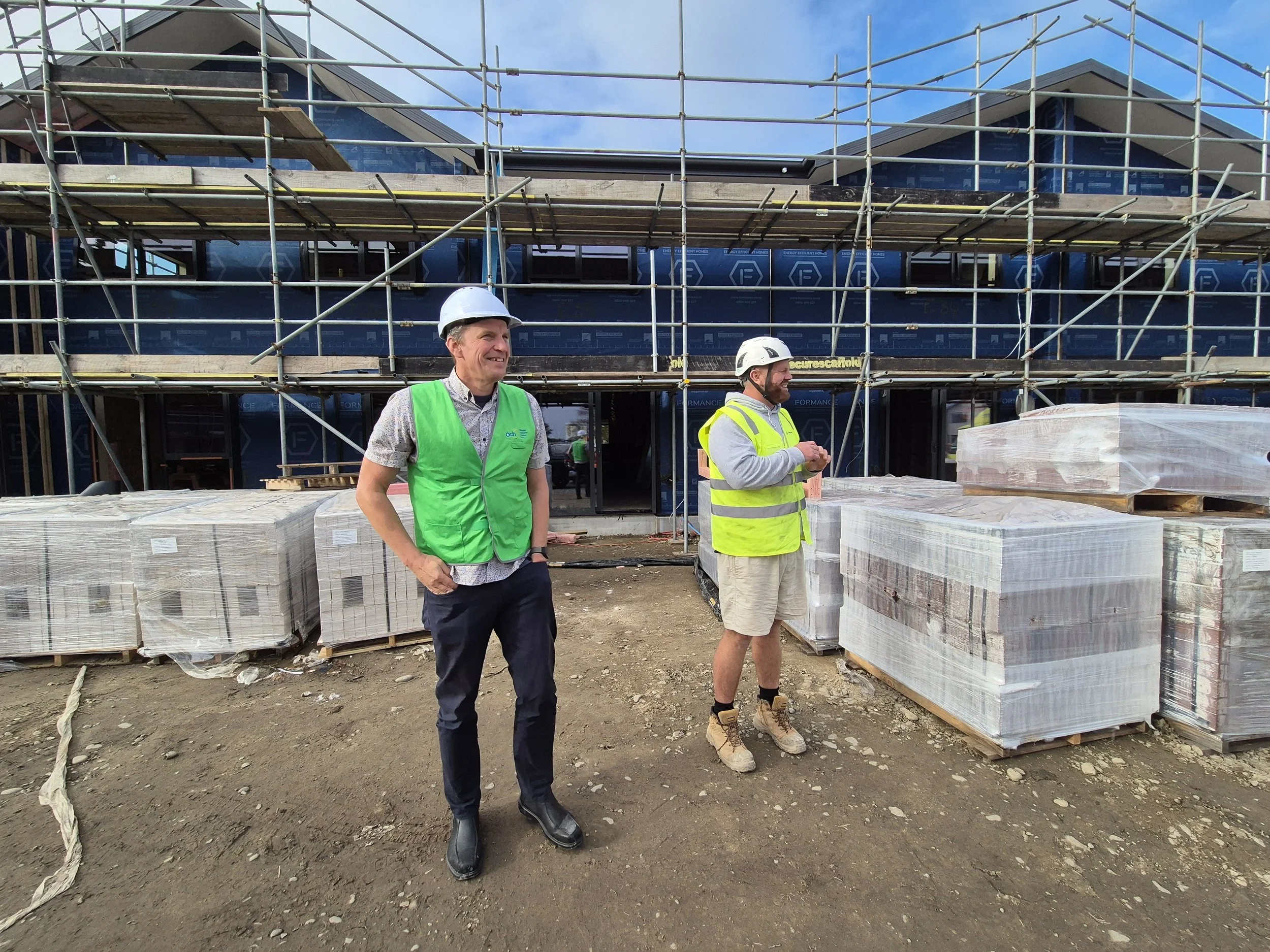How ŌCHT’s latest development is boosting the local economy in Christchurch
Ōtautahi Community Housing Trust’s (ŌCHT) latest project, Three Lanes Lyttleton Street, is generating significant economic benefits for Christchurch. With over 100 people employed on-site and a direct economic impact of over $15 million benefiting those involved and their families, the project not only addresses the urgent need for affordable housing but also supports the city’s workforce and local businesses.
The people behind the project
The success of this development lies in the local workers who bring it to life. The project has directly hired 43 staff through the lead contractor, Consortium, alongside 15 temporary labour hire staff and 25–30 construction workers on-site daily, including site managers, carpenters, and civil contractors.
What makes this development stand out is its commitment to local employment. Every worker on-site is from Christchurch, and the apprenticeship programme has provided hands-on experience to five carpentry apprentices, with many more gaining valuable training through the subcontractor network. These opportunities are creating pathways into long-term, sustainable careers in the construction industry.
The development supports a wide range of skilled trades, including:
Surveyors, drain layers, and civil construction staff
Roofers, bricklayers, and flooring specialists
Plumbers, electricians, and solar system installers
Joiners, metal fabricators, and tilers
Each worker contributes to building homes that will provide stability and security for Christchurch families.
Boosting the local economy
The benefits of this project extend far beyond the construction site. All suppliers, subcontractors, and the consultant team of architects and engineers involved, are from Canterbury, ensuring that the financial impact stays within the region.
Developments like Three Lanes Lyttleton Street benefit more than just the whānau who call them home. The project is estimated to generate over $15 million in direct financial benefits for the wider community through wages, supplier contracts and subcontractor agreements.
At peak times, more than 100 workers and suppliers are engaged on-site, and the ripple effect is felt throughout the local economy. Local businesses, particularly small-to-medium enterprises, are thriving thanks to their involvement in this development.
“By using high-performance materials and efficient construction methods, Three Lanes Lyttleton Street delivers warm, durable homes with lower running costs for the people who call these communities home,” said Paul Wilkins, Director at PXA.
“It’s a practical, future-focused approach that reduces environmental impact and makes everyday living more affordable.”
Larger projects like Three Lanes Lyttleton Street are vital to stabilising the construction industry, especially in a cyclical market. They create long-term employment, with 15–20 full-time workers within the contractor Consortium alone benefiting from sustained work.
The future of construction in Christchurch
This development represents a commitment to innovation, sustainability and the highest standards in construction. Over time, ŌCHT’s partnership with Consortium has evolved to improve efficiency, affordability and long-term durability.
“Each project we work on together builds on the lessons learned from the last,” said Steve Wildermoth, Quantity Surveyor / Director, Consortium Construction.
“We’ve created dozens of jobs for local tradespeople, apprentices and small businesses across Canterbury, and we’re continually refining our approach to deliver better, more cost-effective outcomes for residents. Early contractor engagement has been key, helping us mitigate risk, manage supply chains and streamline delivery from day one.”
Key lessons from this and previous developments continue to shape the future of construction in Christchurch:
Early contractor engagement helps reduce delays and improve buildability, a practice that has evolved over multiple projects.
Adopting new methodologies enhances efficiency and long-term housing quality, with each development introducing incremental improvements.
Consistent investment in apprentices and upskilling programmes ensures the future workforce is skilled and ready to meet the evolving demands of the construction industry.
Innovation and sustainability
Three Lanes Lyttleton Street incorporates sustainable and innovative design features to enhance energy efficiency and liveability. The homes feature high-performance Formance Structural Insulated Panels (SIPs), delivering a 29% improvement in thermal performance compared to traditional timber frame construction. This results in lower heating demand, reduced running costs for residents and healthier indoor living environments.
Other key sustainability and design elements include:
Off-site SIP panel manufacturing, reducing waste and supporting faster build times.
Durable brick external cladding, lowering long-term maintenance costs.
Acoustic treatments for homes near high-traffic areas, reducing noise pollution.
Accessible ground-floor units, future-proofed for residents with mobility needs.
A lasting impact
By prioritising local employment, business partnerships, and sustainable growth, ŌCHT’s latest development is making a meaningful impact on Christchurch’s economy and workforce. It serves as a clear reminder that affordable housing projects do more than just provide homes — they create jobs, support businesses and strengthen communities.
ŌCHT’s continued contribution to the sector has also been recognised in the latest Canterbury Construction Report, which named the Trust among the top 10 developers in Christchurch for the 12 months to March 2025. With building consents valued at around $18 million, this highlights the scale and consistency of ŌCHT’s work, and its outsized impact on the city’s housing supply and construction industry.





